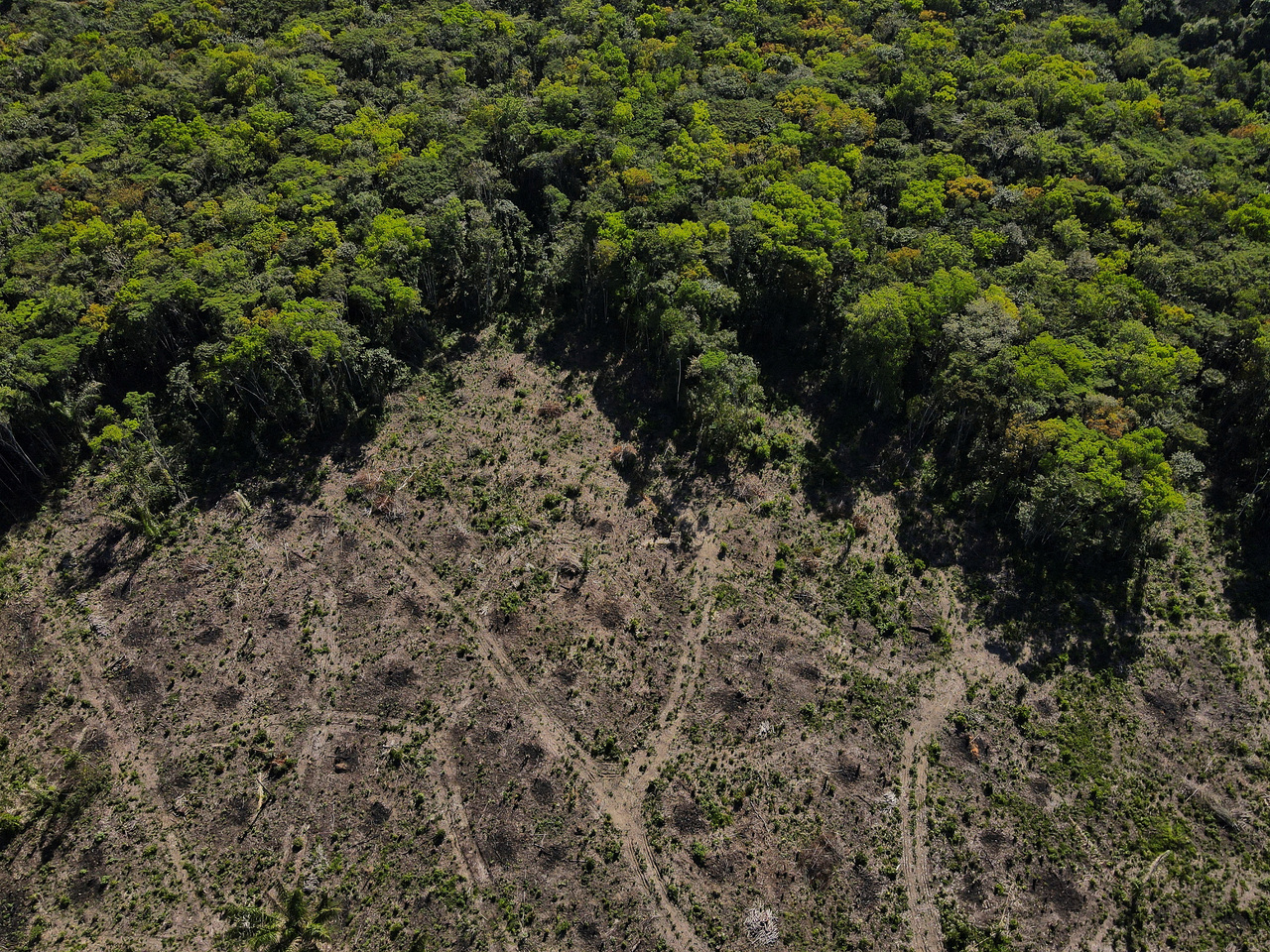Stress caused by climate change weakening forests' resilience: Study
Sign up now: Get ST's newsletters delivered to your inbox

There is growing concern that parts of the Amazon rainforest will turn into grassland because of drought, fires and deforestation.
PHOTO: REUTERS
SINGAPORE - Globally, forests help fight climate change by soaking up large amounts of carbon dioxide (CO2) emissions.
But research published on Wednesday (July 13) shows that climate change is weakening the ability of large areas of forests around the world to recover from impacts such as water stress, wilder swings in the weather and other disturbances, suggesting that the climate change-fighting powers forests have are being diminished and that forest conservation and management plans might need a rethink.
A research team led by Professor Giovanni Forzieri of the University of Florence found that over much of the globe, forests are becoming less resilient. That is, forests are becoming less able to withstand and recover from environmental disturbances. This includes droughts, more extreme heat, as well as wildfires and pest infestations.
"Our results show that a large part of global forests are becoming more fragile to external climate disturbances," Prof Forzieri told The Straits Times.
Using satellite imagery, statistical analysis and artificial intelligence, the team assessed forests globally between 2000 and 2020.
The analysis showed that the resilience of tropical, arid and temperate forests has declined over this period. They found that these changes were associated with reduced water availability and increasing climate variability.
However, boreal forests in the higher latitudes of the northern hemisphere showed an increasing trend in resilience. This is possibly because these cold-climate forests have been benefiting from warming and CO2 fertilisation, which has boosted their productivity.
Forests, which cover a third of the planet's land surface area, soak up about a third of humanity's CO2 emissions, mainly from burning fossil fuels.
They also provide ecosystem services that benefit people, such as regulating water flows, soil conservation, and materials such as medicines and timber. They also help regulate the weather and local temperatures.
But little is known about how forest resilience has been changing in response to global warming, said Prof Forzieri, adding his team's work was the first observation-based global assessment to investigate this.
The concern now is the impact of weaker, less resilient forests.
"Forests which have already reached their critical threshold and are experiencing a further degradation in resilience may be potentially close to a tipping point. A possible collapse of these forests would seriously endanger the provision of key ecosystem services," Prof Forzieri said.
This included CO2 capture and storage - trees soak up CO2 during photosynthesis and store carbon in their trunks and roots.
There is growing concern, for example, that parts of the Amazon rainforest will turn into grassland because of drought, fires and deforestation.
The findings also mean conservation projects that aim to protect or restore nature and soak up CO2 could be affected.
Such nature-based climate solutions are potentially worth billions of dollars in tradeable carbon offsets, which can be used by companies or governments to reduce their emissions in addition to other carbon-cutting steps.
"It is becoming urgent to account for these trends in the design of effective forest-based mitigation strategies to avoid future unexpected negative events triggered by the increasing vulnerability of carbon stocks," concludes the study published in the journal Nature.
Prof Forzieri said his team used satellite-based data with machine-learning techniques to explore at the global level and at 5km x 5km resolution grids how forest resilience has changed over the past two decades.
He said the team estimated that about 23 per cent of undisturbed forests have already reached their critical threshold and experienced a decrease in resilience to levels that are already close to an abrupt decline and, potentially, to a tipping point.
Professor Koh Lian Pin, director of the National University of Singapore's Centre for Nature-based Climate Solutions, said the study's findings were consistent with previous research showing how climate change can affect the ability of forests to withstand disturbances and continue delivering ecosystem services, including soaking up CO2.
Regional implications of the research need further study, he said.
"More research at the regional and sub-regional scale needs to be done to understand the resilience of South-east Asian forests against climate change, and its impacts on the design and success of nature-based climate solutions," he told ST.


